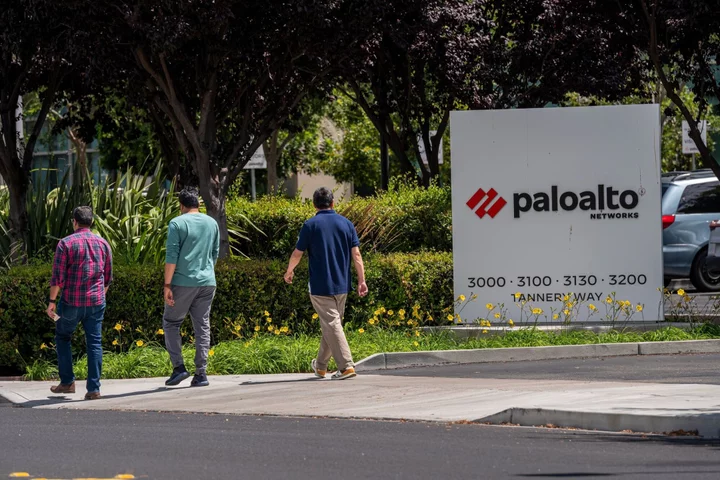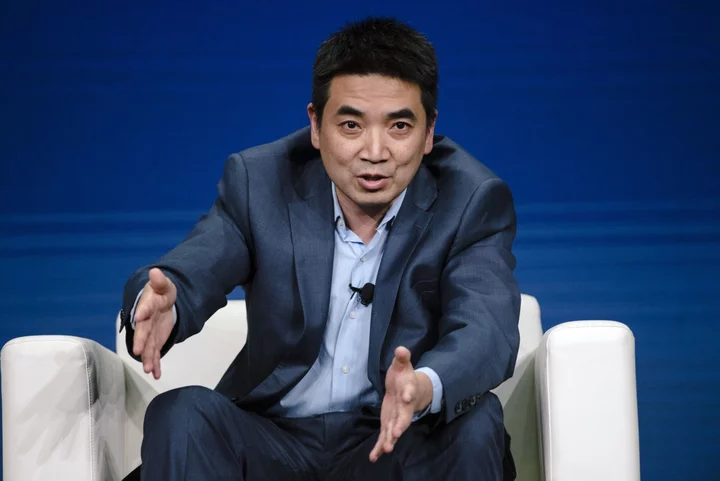Cybersecurity firm Palo Alto Networks Inc. surged after projecting stronger billings for the year than Wall Street anticipated, easing fears that a slowdown in demand may weigh on results.
The company sees billings for the fiscal year ranging from $10.9 billion to $11 billion, compared with an average analyst estimate of $10.8 billion. Still, the firm’s quarterly and annual revenue outlooks came in below analysts’ estimates.
Palo Alto’s outlook is a potential bright spot for the cybersecurity industry. Companies such as Fortinet Inc. and Check Point Software Technologies Ltd. had been reporting earnings that pointed to a slowdown across the space, hurt by a broader pullback in tech spending and a shaky economy.
Palo Alto Chief Executive Officer Nikesh Arora said in a statement that the company’s “strategy is resonating with a growing number of our customers, driving continued consolidation.” He also noted that the Santa Clara, California-based company was “pleased” with the reception for its artificial-intelligence-based security platform.
The stock was up 10% at $228.29 in late trading as of 4:30 p.m. New York time.
In a departure from the company’s usual timings, the results came after the closing bell Friday, prompting speculation that the forecast might not be promising. The stock had fallen around 20% since that announcement, as “pure fear” spread through investors.
At the top of the earnings call, Arora apologized for what he said was the “unique attention” the company had drawn over its decision to hold its earnings call late on Friday afternoon, saying it was due to wanting to give ample time for one-on-one conversations with analysts before a sales conference starts on Sunday.
Total revenue for the fiscal fourth quarter was $1.95 billion, just shy of analysts’ estimate of $1.96 billion.
Arora argued the cybersecurity industry needs to shift much more to solutions that can stop attacks in real time rather than the four to six days he said it takes now.
“That’s not acceptable,” he said. “This thing will have to go down to minutes.” Arora pointed out one reason to speed up cyber solutions: a new rule by the US Securities and Exchange Commission that will require publicly listed companies to disclose cyber breaches within four days of determining that they are material.
Artificial intelligence, which could help deliver such real-time autonomous solutions, would require further investment, he said, but added that it has a “dark side” that the industry will need to address to prevent abuse. Palo Alto Networks is “quadrupling down” to make sure precision AI is deployed across every product, he said.
(Updates with additional information starting in the eighth paragraph. A previous version of the story was corrected to reflect that outlook is for the full year in second paragraph.)









